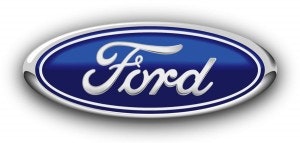
First up
Ford Motor Company (NYSE:F) has long been a favorite of mine; even after its recent climb in stock price, I feel it’s undervalued. In my opinion it’s undervalued mainly due to the dismal outlook from Europe, which weighs heavily – an estimated $2 billion in losses – on the balance sheet. Here’s why I think investing in Ford Motor Company (NYSE:F) now could be a good play.
Growth
Its new global platforms of vehicles have been successes, every single one. The Fiesta, Focus and F-Series are all in the top six in global sales. The Fusion, which has had more success than the Fiesta and Focus in the U.S., is just now entering Europe and China. Ford Motor Company (NYSE:F) will be introducing 15 models into China by 2015, expecting to double its market share as the region quickly expands. The growth story is compelling, but is profitability sustainable now?
Sustainable
Ford Motor Company (NYSE:F) is well ahead of its competitors in creating economies of scale. It’s running plants at or near capacity, helping U.S. margins maintain 11% – a strong number in the auto industry. It’s expecting to get its number of platforms down to nine by the end of this year, allowing it pricing power through its suppliers. It’s estimated that Ford Motor Company (NYSE:F) can break even at U.S. automotive sales as low as 10 million a year now. Cost-cutting measures are already in place, and only improving; growth seems secure, and it definitely seems sustainable.
Last but not least
The Boeing Company (NYSE:BA) is an intriguing play that could rebound with the global economy and increased air travel. A common bearish argument I hear is that with government defense cuts looming, it could have a big effect on The Boeing Company (NYSE:BA)’s profitability. While those cuts definitely will have an impact, I think future growth in its commercial airline business – where it derives 60% of its revenues – could outweigh the loss of defense money.
Growth
The Boeing Company (NYSE:BA) has estimated that, as developed markets replace existing aircraft fleets and emerging markets increase air travel, future aircraft demand will be worth almost $4.5 trillion over the next 20 years. Considering that The Boeing Company (NYSE:BA) and competitor Airbus have a duopoly on the market for large commercial aircraft, that demand will equal a nice chunk of change for growth potential. However, what can Boeing promise investors that is sustainable – not just potential – growth?
Sustainable
We’re in luck! The Boeing Company (NYSE:BA) has a massive backlog of orders and deliveries to produce – equaling nearly $400 billion. If you want to compare that to its annual sales, it’s roughly 4.5 times this year’s estimate. That’s about as sustainable as growth gets. Four years of guaranteed sales? Sign me up.
Bottom line
Both of these companies have bear cases to be made against them, but I like the future sustainable profits they have in line. I think both are undervalued and may take some time to appreciate to the stock prices they deserve. If you’re a long-term investor, this could be a reason to research more. If you decide to invest, while you’re waiting, know that both happen to offer dividends to help make your trip a little more enjoyable.
The article 2 Stocks With Sustainable Growth originally appeared on Fool.com and is written by Daniel Miller.
Motley Fool contributor Daniel Miller owns shares of Ford. The Motley Fool recommends Ford. The Motley Fool owns shares of Ford.
Copyright © 1995 – 2013 The Motley Fool, LLC. All rights reserved. The Motley Fool has a disclosure policy.